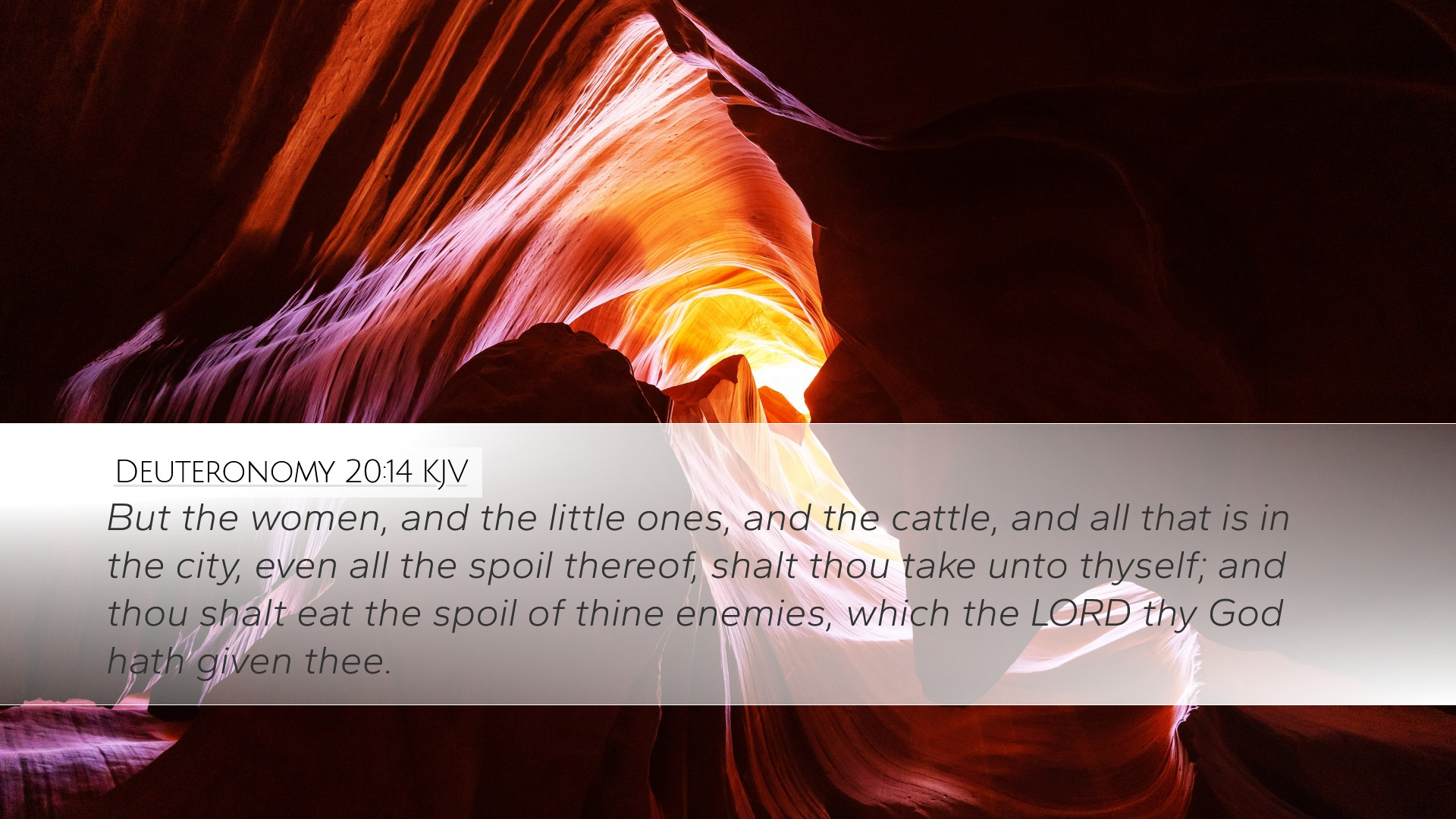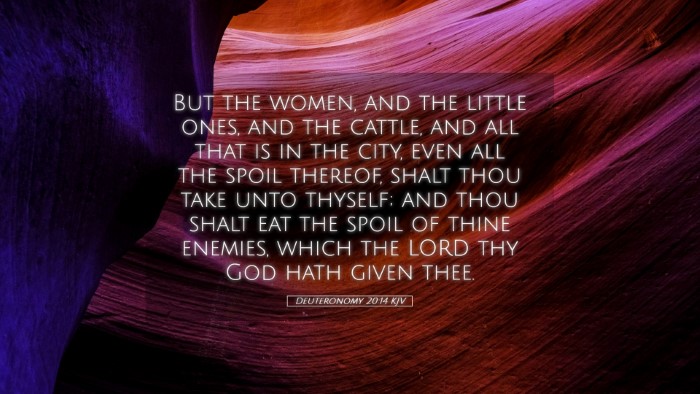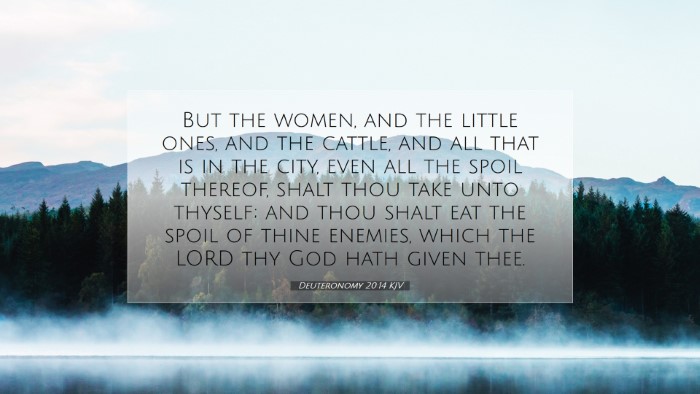Commentary on Deuteronomy 20:14
Verse: "But the women, and the little ones, and the cattle, and all that is in the city, even all the spoil thereof, shalt thou take unto thyself; and thou shalt eat the spoil of thine enemies, which the LORD thy God hath given thee." (Deuteronomy 20:14)
Introduction
This verse is part of the larger context in which God provided specific instructions to the Israelites regarding warfare and the conduct expected of them. Deuteronomy 20 outlines the rules of engagement, illustrating God's concern for both the moral and practical aspects of war and its outcomes.
Contextual Analysis
Military Conduct: The chapters preceding this verse provide a framework for Israelite military conduct. God gave them laws to ensure that they approached war not with a spirit of ruthless aggression, but with a sober understanding of divine guidance and moral integrity.
Instructions for Warfare
In Deuteronomy 20:1-4, God encourages His people not to fear their enemies because He is with them. The passage promotes bravery and assurance rooted in faith rather than in human strength.
Importance of Spoils of War
The command to take possession of spoil after victory is significant. It not only serves a practical necessity of providing sustenance for the soldiers and their families but also illustrates a deeper theological significance regarding God's provision and faithfulness to His people.
Theological Insights
God’s Provision
Commentators like Matthew Henry emphasize that the spoils of war symbolize God's blessing and providence. By permitting the Israelites to retain the spoils, God reassures them of His continuous support and abundance. This aspect highlights the theological concept of divine reward for obedience and faithfulness in fulfilling God’s commands.
Ethics of Warfare
Albert Barnes adds that this instruction also illustrates the ethical dimensions of warfare within the Israelite context, contrasting the violent customs of surrounding nations, where women and children were often treated insensitively. Here, the divine decree respects the dignity of life while also acknowledging the realities of survival in warfare.
Application for Modern Believers
For pastors and theologians today, Deuteronomy 20:14 provides challenging yet enriching lessons about the nature of God's involvement in the affairs of humanity, especially in times of conflict. It compels modern believers to contemplate the moral dimensions of their pursuits and the guidance of divine principles in their actions.
Spiritual Warfare
In the New Testament, the concept of spiritual warfare emerges significantly. The spoils of spiritual conflict involve the fruits of righteousness, eternal life, and the growth of the kingdom of God. Just as God instructed the Israelites not to fear their enemies, Christians today are called to stand firm in the face of spiritual challenges, relying on God’s provision and strength.
Historical and Cultural Considerations
Adam Clarke notes that the behaviors prescribed here highlight a stark contrast with the practices of other ancient Near Eastern cultures, providing insight into Israel's identity as a unique and covenantal community. This context encourages a reflection on how cultural influences shape beliefs and practices within different communities of faith today.
Lessons in Justice and Mercy
As modern believers engage with this text, they are reminded that God's commands include justice and mercy even amidst warfare. The treatment of conquered peoples, as indicated by the preservation of women and children, serves as a critical lesson in honoring human dignity even in times of conflict.
Conclusion
Deuteronomy 20:14 offers a profound understanding of God's character and His expectations for His people. The dual themes of providence in the wake of conflict and the intrinsic value of every human life are timeless principles that resonate through scripture, challenging believers to live out their faith with integrity and compassion.
Reflection
In summary, every verse in scripture has layers of meaning and applications. For pastors, theologians, and believers, the insights from Deuteronomy 20:14 invite deep reflection on personal and communal conduct as they navigate their faith in an often-complex world.


